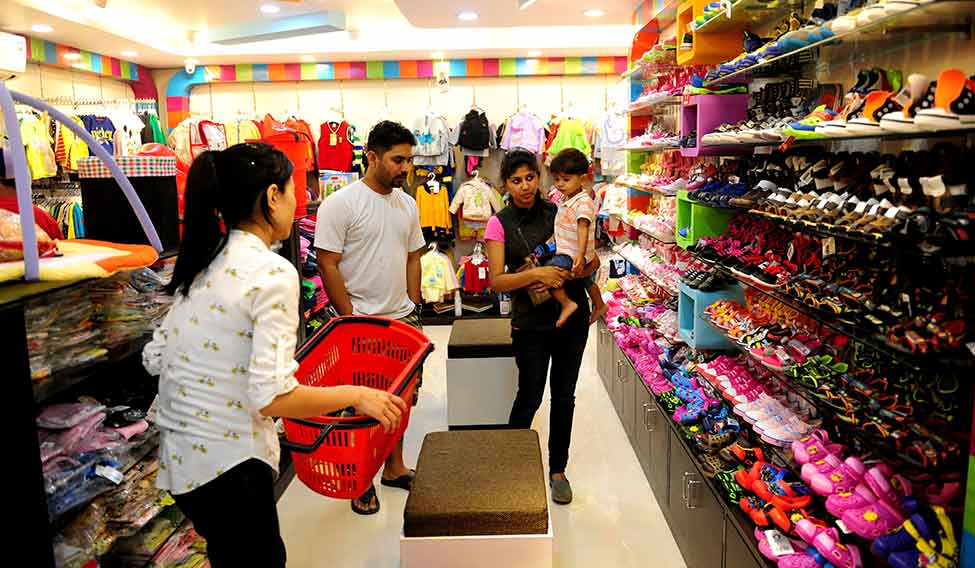Pune-based Radhika Iyer has been a regular online shopper for years. There was, however, a change in her approach after she gave birth to a boy. Although the 27-year-old bought most baby products online through the portal Firstcry.com, she was hesitant to buy a stroller online as it was a high involvement purchase. From a friend, she came to know that the portal also had an offline retail store in Pune. At the store, she was delighted that she could touch and feel the products before buying them. There was even a kiosk with a screen where she could look for colours, designs and brands. She finally found what she wanted and bought the stroller for her son.
Amit Kumar from Siliguri is another customer who loved the offline experience offered by Firstcry. In a local store, Kumar and his wife, who have a two-year-old girl, were taken through the website and the mobile application and could touch and feel the products. They also got all the offers and discounts given to online customers.
When the Pune-based Firstcry started its e-commerce journey five years ago, it opted for a mix of online and offline presence as it realised that nearly 85 per cent of Indian customers shopped offline. “Our offline customers are given the same level of experience as our online customers. We have kiosks at all our outlets where a customer can see the product on the website and buy it at the store. An offline customer is also offered loyalty points which are given to our app and online purchasers,” says Supam Maheshwari, chief executive officer and founder of Firstcry, which now has around 130 stores across the country.
Most e-commerce ventures have plans to build their offline presence with brick and mortar stores to woo more consumers, especially in tier-II and tier-III cities, who do not have steady internet access. “This new offering has been launched with an aim to bridge the gap between offline and online. We also want our customers to experience exclusive brands available only through the website,” says Ankit Nagori, chief business officer, Flipkart. “We have also launched our offline pick up centres called experience zones, where customers can collect their shipment at a time of their convenience. A customer today appreciates value-added services like open-box delivery and instant returns/exchange,” he says.
Flipkart's experience zones, located in 30 locations across tier-I and tier-II cities, offer customers instant returns, open-box delivery, cash on returns and trial rooms so that customers can try and buy things and get exclusive product demos, apart from assisted buying. “Through offline stores, we want customers to understand the convenience and the ease of shopping online. Once they get the taste of shopping online, they will want to do so constantly. With our offline stores we have been able to reach out to customers who are not technology savvy. This model also helps eliminate the waiting time to receive the shipment,” says Nagori. Flipkart has plans to expand its offline presence to smaller cities and to provide a wider range of products.
Lenskart, another e-commerce portal, which specialises in eyewear, has retail stores across the country and is planning to expand further. “The fact that eyewear as a category is fairly complex was one of the prime reasons behind coming up with offline stores,” says Peyush Bansal, chief executive officer and founder of Lenskart. “The objective is to provide a tangible experience to our consumers and allow them to touch and feel the products. Since eyewear is extremely personal, many still require assistance. We Indians want to touch and feel the product before buying it. Hence, the transition from offline to online will still take time.”
Lenskart wanted to have an omni channel presence to help increase touch points and reach out to maximum customers. Bansal says this has helped in removing customers' apprehensions and hesitation in buying eyewear online. “We call our model the assisted e-commerce model. Although we have invested and continue to invest in expanding our offline presence, we are also driving people to our website to make a purchase. We help them do this through our innovative services like home eye checkup services,” says Bansal.
The portal is betting big on its offline presence and has opened 100 stores across 66 Indian cities including Agartala, Tirupati, Siliguri, Raipur, Haridwar and Varanasi. It has plans to open 2,000 stores in the next couple of years, also covering smaller towns. These stores will have specially trained representatives to help customers to select the right frames for themselves based on their requirement, face cut and fit, and give them a flavour of the brand. At the same time, they also handhold consumers at every step till the final purchase and make them familiar to the online purchase process.
For travel portal MakeMyTrip, it has always been a mix of offline and online models. The company feels that many of the high value decisions such as a foreign tour package or booking international air tickets which have that element of complexity require a certain level of human intervention, which can be fulfilled only through offline stores. Currently the travel portal has around 50 stores across the country and it is a mix of its own stores and through a franchise model. “Offline stores have been an important part of our journey,” says Mohit Gupta, chief operating officer, online, MakeMyTrip. “We have travel experts at our offline stores who help our customers discuss visa issues and also help them decide on tour packages which may involve the kind of hotel to stay, the food to eat and the places they may like to visit. Our travel experts at the stores also help those customers who are not very net savvy to make bookings online.”








